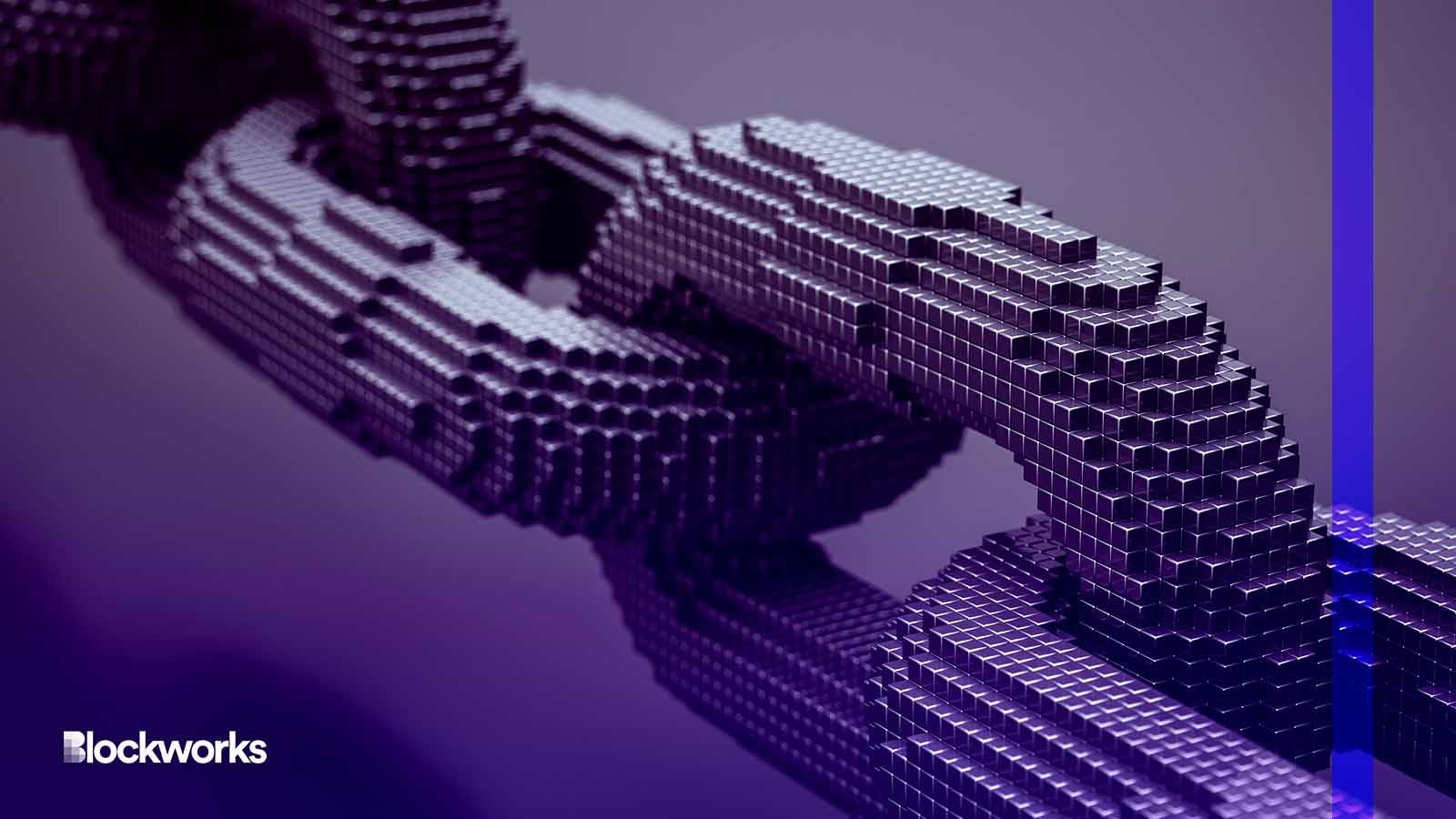Sovereign Rollups Carve a Path for Blockchain Scaling
Prove a thousand or a million transactions for the same cost

dencg/Shutterstock modified by Blockworks
It’s been a problem since the inception of distributed ledgers. Layer-1 blockchains are slow, expensive to operate and difficult to scale.
One of the solutions to this challenge emerged in the form of zero-knowledge rollups — or ZK rollups — a key tool for easing many of the issues faced by layer-1 networks. Now, all kinds of improvements to rollups are supercharging speed and lowering costs, with Sovereign rollups in particular carving a new path forward.
Sovereign Labs Chief Technology Officer Preston Evans spoke to Blockworks about the significant advantages of Sovereign rollups on a recent episode of 0xResearch. The only difference for the user, Evans says, is faster confirmations and cheaper fees.
It’s a bold statement, Evans admits, but it comes down to a clever loophole in the way ZK rollup costs are determined. The most expensive activity for most rollups is verifying proofs, he explains. But they don’t get any more expensive to check if they’re bigger, “so you can prove a thousand transactions or a million transactions for the same L1 gas cost.”
This would potentially result in several hours of latency under normal circumstances, but ostensibly not with Sovereign Labs’ solution to the problem. Instead, proofs can be sent directly to a peer-to-peer layer of light clients as needed, in real time.
Sampling the data
Another issue at the heart of keeping things on the up and up in any blockchain environment is ensuring that data is available when users need it. “It’s very important as a user that you know what’s inside the state commitment that the ZK-SNARK attests to or that the rollup attests to. That’s the data availability problem.”
To solve the problem, Evans explains, “you just have to publish the data on the internet somewhere,” Evans says, with the “gold standard” being a layer-1 blockchain. A number of specialized chains are designed solely for this purpose, with some of the best implementing data availability sampling.
Current rollups on Ethereum post their blocks directly to a bridge contract, as explained on a blog posted by Celestia, a modular blockchain solution built for scaling.
Sovereign rollups can operate like a layer-1 blockchain, but with key differences that improve efficiency. Celestia uses a data sampling mechanism which enables light nodes to sample small chunks of data for verification. “The main difference,” the blog notes, “is that they also verify that the rollup block data was included and ordered on the Celestia data availability layer via a Merkle proof.”
This data sampling process allows a user to “very trivially check that the data availability chain is really doing what it claims to be doing,” Evans explains.
Why not just use AWS?
Centralized services are another path to speed and efficiency. Evans argues however that the goal for designing sequencers is ultimately decentralization. “If you just wanted a centralized chain, why not use a database on AWS?”
Centralized sequencers are essentially a stopgap, he says, but in the long term, decentralization offers a better alternative in the form of censorship resistance. “It’s very likely that some jurisdictions will treat centralized sequencers as money transmitters…Who knows what’s going to happen?” he argues. “If they decide to start censoring you, then you’re straight out of luck, right?”
Soft confirmations — essentially, a promise from a sequencer — are one way to bridge the speed gap, according to Evans. “If you send a transaction onto Ethereum, it typically takes 15 seconds, 30 seconds, maybe a minute to finalize.” In comparison, a centralized sequencer could potentially give a soft confirmation much faster than a layer-1 would finalize.
“There’s lots of interesting designs to explore,” Evans states. A centralized sequencer, for example, might have the right to include some transactions in a block and be able to give a soft confirmation but not have the right to make the whole block, thus preventing censorship.
“Frankly, it’s pretty early. A lot of these decentralized sequencers are really just white papers at this stage.”
“We try not to bet too hard on any particular model and just contribute the research and help push people towards the good decentralized models. But it’s really too early to pick a winner.”
Get every episode of 0xResearch as soon as it’s out!
0xResearch is the show for those who want to step up their game and think like a crypto analyst. We bring on crypto’s best to uncover the latest research, explore protocol developments and identify new narratives. We are two full-time crypto analysts who read white papers, governance forums and research pieces for fun (normal, right?)
Subscribe on Spotify | Apple Podcasts | or view all previous episodes .






